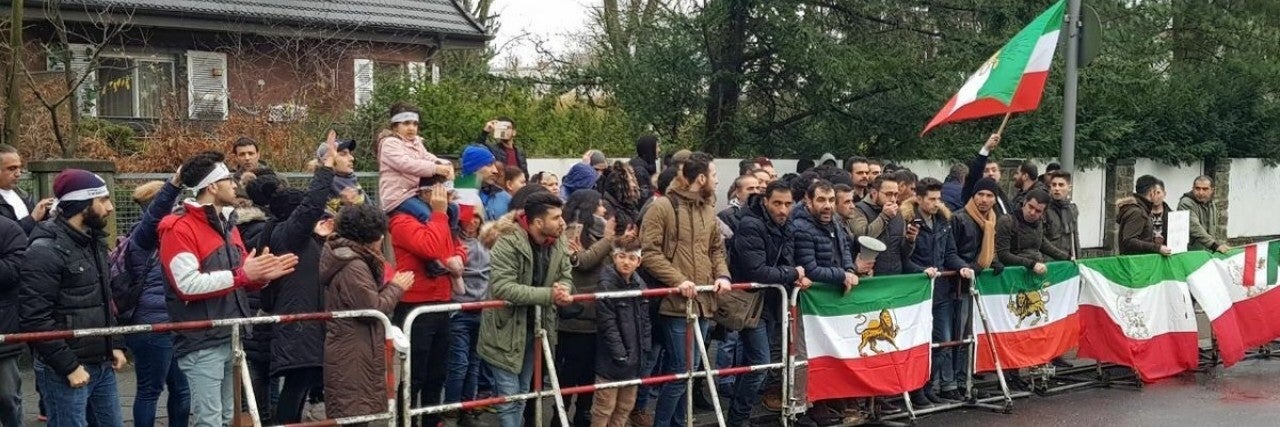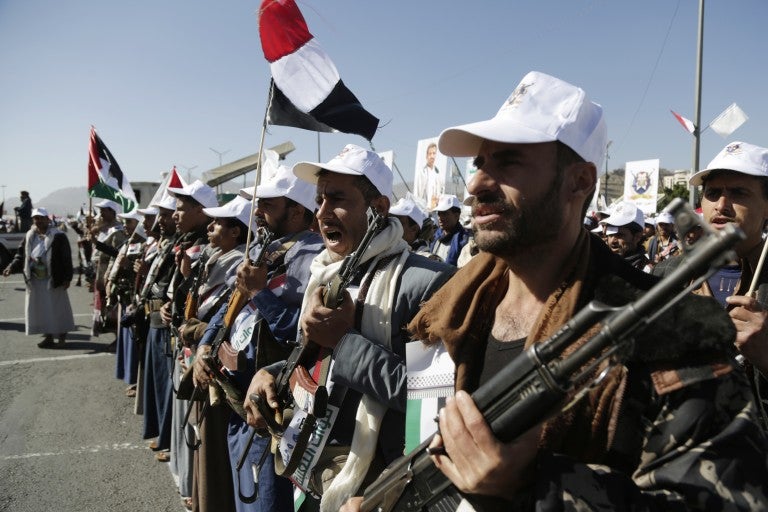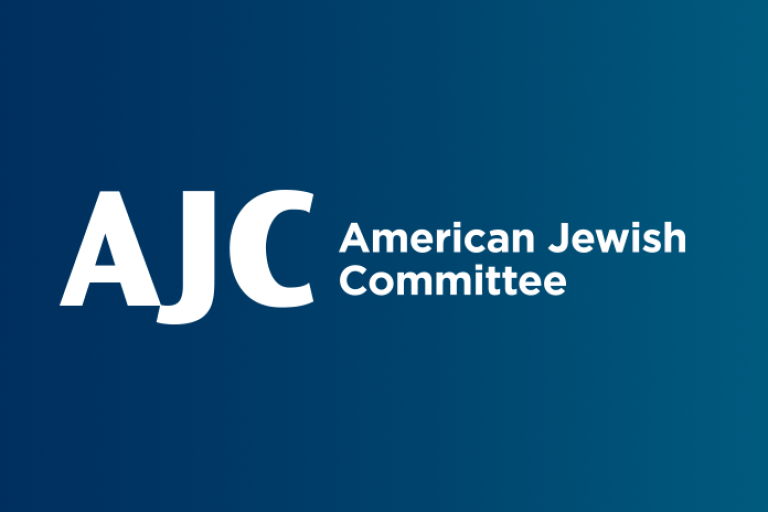January 4, 2018 — Brussels, Belgium
This piece originally appeared in Newsweek.
Europe’s voice has been strangely missing as tens of thousands of Iranians have been protesting for dignity, freedom, and economic survival.
High Representative Federica Mogherini finally issued a statement on behalf of the 28 EU member states, a week into the protests and after security forces had killed at least 21 people and incarcerated over 2,000. Her words, though, were tepid and somewhat ambiguous.
While the statement affirmed that peaceful demonstrations and freedom of expression are fundamental rights, it failed to clearly condemn the regime’s killings and arrests. It spoke in general terms of “unacceptable loss of human lives,” but failed to name either the perpetrators or the victims.
The assertion that EU member states “expect all concerned to refrain from violence” could be read to suggest an equivalence between protesters rising up against a brutal theocracy and security forces shooting at protesters. The EU statement echoed earlier ambiguous messages from the German and British foreign ministers that similarly called on “all sides” to refrain from violence.
A robust defense of Western values this is not. Neither is it in the best interests of Europe.
This late and muted reaction contrasts with the strong and quick response by the U.S. president, vice president, secretary of state, and numerous members of Congress from both sides of the aisle.
What explains Europe’s hesitation to show a more united transatlantic front in standing up for Western values vis-à-vis Iran?
Do Europe’s policymakers fear that a more forceful reaction could jeopardize the nuclear agreement, which the U.S. believes is deeply flawed and the EU wants to preserve?
But such considerations would contradict the EU’s own previous reassurances that, irrespective of the deal, it would continue to press for human rights, which the statement says has “always been a core issue in our relationship with Iran.”
Whatever disagreements may exist about the deal’s wisdom, it should not restrict the West from confronting the Islamic Republic’s regional aggression and internal oppression.
Besides, if the EU is worried that Tehran would use a tougher EU stance as an excuse to cancel the deal, no doubt Iran will eventually find another excuse to do just that.
Some European policymakers may fear that Western support of the demonstrators could undermine the so-called moderates in Iran. Some have even suggested that the protests may have been started by “hardliners” eager to undermine President Rouhani.
The theory that Rouhani and Foreign Minister Zarif are agents of change rather than just the more charming faces of the same brutal regime was always rather precarious. The “moderate” Rouhani has been an integral part of the regime from day one, and led the brutal crackdown of the 1999 student protests.
Whatever hopes one may have had about his moderation ought to have been buried beneath the legacy of his nearly five-year rule.
Under Rouhani, Iran has become the world’s leading executioner per capita and of children and women in absolute terms, while its troops are carrying out ethnic cleansing in Syria, supporting a regime that has used chemical weapons.
Even if one insists on clinging to the belief that his intentions may be honorable, Rouhani obviously has no power to implement them. Just like the inconsequential “reformers” of the 1990s, it ultimately doesn’t matter whether he doesn’t want to or simply cannot change the system.
“Reformist and hard-liners, you are both done,” is thus one of the popular chants of protesters. The Iranian people have seen through this cynical game of good cop-bad cop. It’s time for the EU as well to abandon the decades-old hope that the regime might be reformed from within.
Then there is that old realpolitik concern for “stability.” Having watched the Arab Spring turn into an Islamist Winter, European policymakers may simply be wary of more unrest in the region. But such a consideration overlooks three important differences.
First, the Arab countries that saw popular uprisings had secular regimes where the only organized opposition was Islamist.
In contrast, Iran is already run by mullahs, which is precisely what the protesters want to change. “We don’t want the Islamic Republic, we don’t want it,” they chant.
Second, Iran is in a far better position to replace its regime with a more liberal political system. That’s because Iranians are well educated and rather pro-Western, not least thanks to the many exiled friends and family living in the U.S. and Europe. This successful diaspora community would no doubt be eager to help rebuild the homeland they had to flee.
And third, unlike many of the Arab regimes that were largely a menace only to their own people, the Islamic Republic is a revolutionary regime that seeks to export its ideology and influence. It endangers its neighbors as much as its own people.
Tehran has propped up the Assad regime in Syria, supports the Houthis in Yemen, and funds terrorist groups such as Hezbollah and Hamas. So the continuation of the Iranian regime wouldn’t guarantee regional stability, but rather quite the opposite.
It is in the interest of regional peace, stability, and nonproliferation to see these demonstrations succeed. The protesters may not be able to topple the regime, but they can certainly weaken it—and may already have done so.
“ Leave Syria, think about us,” and “ Leave Gaza, leave Lebanon, my life for Iran,” some protesters are chanting. It will now be much more difficult for the regime to continue funding its wars and terror proxies at the expense of its population’s wellbeing.
Another European concern may be that by backing the protesters, they would actually undermine them as “Western stooges” and trigger an even more brutal crackdown. But this fails to recognize that, like all illiberal regimes, the Islamic Republic is ideologically wired to consider any opposition as directed by the West, no matter what.
Irrespective of what Americans, Israelis, or Europeans may actually say or do, the regime has already accused demonstrators of operating as agents of some Zionist-American-Western cabal.
If the regime goons don't have to fear even rhetorical pushback from the West, let alone sanctions for their crimes, it is far more likely that their response will be even more brutal.
In addition to clearly condemning the regime—and ensuring that the condemnations are also broadcast in Farsi—the EU could do more to help shield the protesters from the regime’s wrath. EU embassies could document and publish the names of those killed and arrested, as well as the names of those security forces directly responsible for the crack-down, all of whom should be sanctioned.
The EU ought to exert its influence on social media companies to do their best to keep open the lines of communication for the demonstrators, and sanction companies that have assisted the regime with electronic surveillance.
They could help document and publish the facts about Iranian corruption, such as the 2013 Reuters investigation showing how Supreme Leader Khameini has stashed away close to $100 billion. And surely there shouldn’t be more high-level meetings with Iranian officials so long as protesters are still being held in jail and tortured.
Nine years ago, the last time Iranians rose up, the U.S. president at the time exercised unusual caution, but that didn’t soften the regime’s crackdown. To the contrary, the government’s response was brutal. Just like the dissidents in the former communist countries, Iranians actually crave Western support. “Obama, you are either with us or with them,” disappointed protesters chanted in 2009.
“I wish we had spoken out more,” former Secretary of State Hillary Clinton said after leaving the State Department.
The time for Europeans to act is now. That way, they won’t have to issue Clinton-like regrets later.
Daniel Schwammenthal is director of the AJC (American Jewish Committee) Transatlantic Institute.



